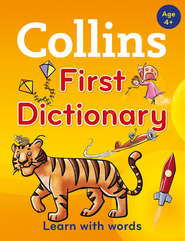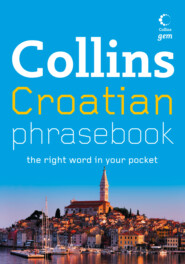По всем вопросам обращайтесь на: info@litportal.ru
(©) 2003-2025.
✖
Collins Primary Illustrated French Dictionary
Автор
Год написания книги
2019
Настройки чтения
Размер шрифта
Высота строк
Поля
C MASC NOUN
eastJe vis dans l’est de la France. I live in the east of France. à l’est de Paris east of Paris
est-ce que ADVERB
Language tip
One way of asking a question in French is to useest-ce que.
Comment est-ce que tu t’appelles? What’s your name? Est-ce que c’est cher? Is it expensive?
l’ estomac MASC NOUN
stomach
et CONJUNCTION
and
l’ étage MASC NOUN
floor
au premier étage on the first floor
l’ étagère FEM NOUN
shelf
étaient VERB
seeêtre
J’ai trouvé mes baskets: elles étaient sous mon lit. I’ve found my trainers: they were under my bed.
étais, était VERB
seeêtre
J’étais dans le jardin. I was in the garden. C’était super! It was great!
l’ étang MASC NOUN
pond
l’ état MASC NOUN
condition
en bon état in good condition en mauvais état in poor condition
les États-Unis MASC PL NOUN
United States
été
étécan be a noun or part of the verb être.
A MASC NOUN
summercet été this summer en été in the summer
B VERB
seeêtre
Il a été puni. He has been punished.
éteindre VERB
to switch off
Éteins la lumière s’il te plaît Switch off the light please.
étendre VERB
étendre le linge to hang out the washing
éternuer VERB
to sneeze
Did you know…?
When you sneeze in France people say‘À tes souhaits!’, which means‘May your wishes come true!’.
êtes VERB
seeêtre
Vous êtes en retard. You’re late.
Language tip
Sometimes êtes is used to show that something has happened in the past.
Vous êtes partis de bonne heure. You left early.











